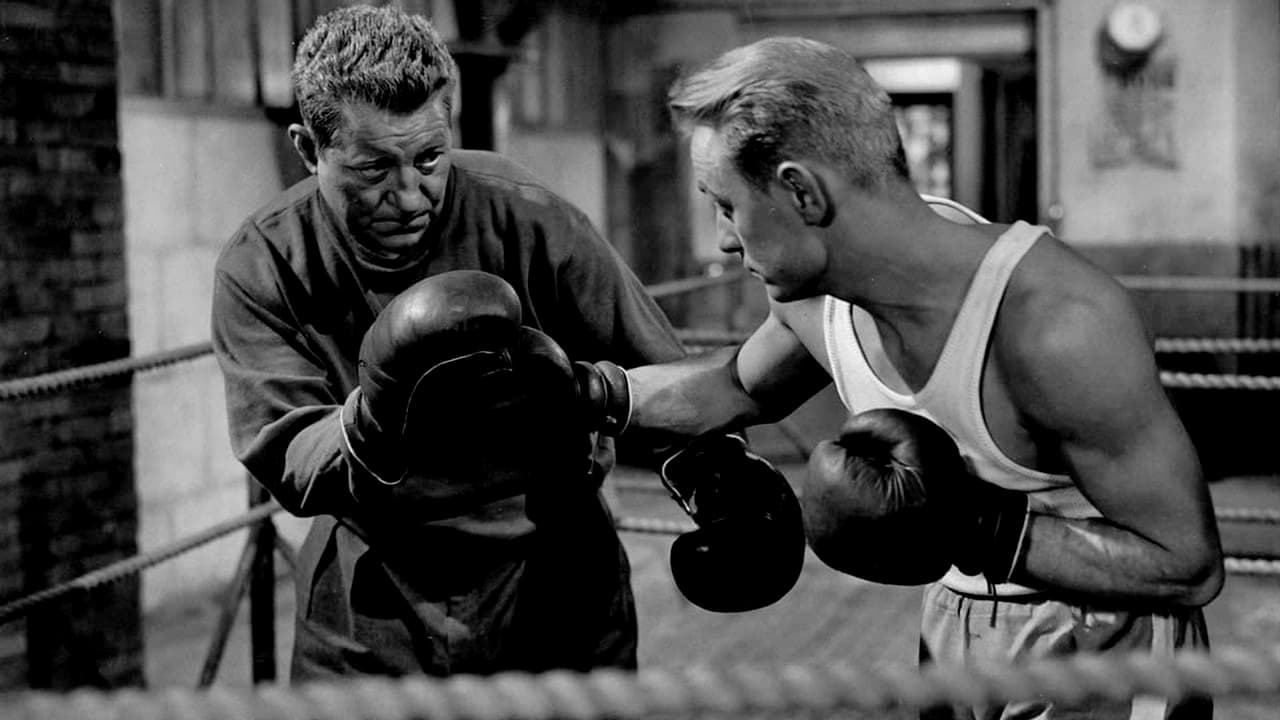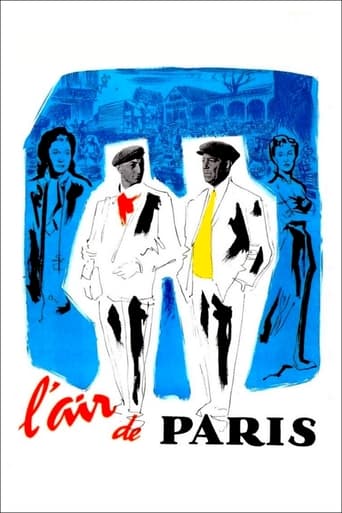

This is a coming of age storyline that you've seen in one form or another for decades. It takes a truly unique voice to make yet another one worth watching.
... View MoreThere are moments that feel comical, some horrific, and some downright inspiring but the tonal shifts hardly matter as the end results come to a film that's perfect for this time.
... View MoreIt's a good bad... and worth a popcorn matinée. While it's easy to lament what could have been...
... View MoreThere is, somehow, an interesting story here, as well as some good acting. There are also some good scenes
... View MoreI knew going in not to expect too much but I'm a glass-is-always-half-full type and always prepared to be pleasantly surprised. It started well; just reading the credits, seeing the name Jean Gabin followed immediately by that of Arletty the whole supered over some great shots of Paris, not really 'touristy' but 'real' Paris, kick-started the drool gene and the evocative Ballade de Paris by Francis Lemarque sustained and lifted the anticipation another notch or two when the credits promised Yves Montand to sing it. Alas, Montand's no-show, no-hear was the first disappointment. Arletty was, of course, magic and proved she can do dowdy as well as the next drudge. Gabin was magic too and although they worked well together somehow the whole fell a lot short of the parts. A listless love affair between two less than dynamic performers didn't help - even in middle age Arletty and Gabin would have sparked them out of sight and the 'boxing', coming years after The Set-Up, Body And Soul and Champion, was a joke. Great to see Arletty and Gabin in anything but what it might have been if Carne was still working with Prevert.
... View MoreA train entering Paris has to briefly halt before entering the terminus because of works on the line. One of the workers is André, he stares up at the train and notices a "beautiful" lady in one of the carriages, she looks back but we are not sure whether she really notices him. Inadvertently she drops a good luck charm out of the train window which falls onto the ballast. When the train has moved on, André picks up the charm and keeps it .... just in case !Later on, our worker André meets up with Jean Gabin in a hospital. Jean Gabin runs a boxing club and takes on the young lad to train him in that sport and also in some ways to replace the son he was never able to have. His wife, Arletty who would have preferred to leave Paris and head to the Côte d'Azur, where she has just inherited property, is not too happy at the idea of having to remain in Paris and with her husband devoting most of his time to the young lad. The young boxer also meets by chance with the lady he saw in the train and starts a brief affair with her.The strong points of this film are not its plot but basically everything else ! The black and white photography and picture quality is excellent and special care seems to have been given by the cameraman to precise lighting effects, "contre-jour" and the like. Certain quarters of Paris, like the rue de Belleville, les Halles in the centre and most of all the banks of the Seine look magnificent. Musically the title is a bit of a misnomer ! Although composed by Francis Lemarque, the tune "L'Air de Paris" does not appear in the film AT ALL ( why did they choose it as a title ? ), the title theme is the even better "Ballade de Paris" composed by the same Francis Lemarque and we are also treated to ample doses of "Toi, tu ne ressembles à Personne" composed by the same author.So the film is plastically beautiful and musically enthralling ... Gabin is his usual old self, pretty good I thought, a rôle a little similar to that in "Voici le temps des Assassins". Arletty has an ungrateful rôle and comes over as an unpleasant person. I did not know the actor who played the part of André nor the actress who played the lady with whom he has a brief affair but I was quite happy with their performances but was hoping for a happier ending.PLot-wise, then the film is weak and flabby - basically if you're not into boxing, you may find it boring at times though if you are a boxer or like that sport, you may well have a field day. There's a particular tense boxing match in "La Centrale" which lasts a good few minutes and is pretty violent. Apart from that and the brief romance, there is not much to speak about ! It's a pity that Arletty was not used to better effect but the importance of the "boxing" element in the film implies that there was not much room for improvement plot wise.Still, it is interesting for anyone who loves seeing films of 1950's Paris .... and for the music of Francis Lemarque !
... View MoreThere are interesting films in Carné's post Prévert career:"Thérèse Raquin" and "les tricheurs",to name but two.But this one is not among them.The screenplay,written by Carné and Jacques Sigurd -who was also Yves Allégret's best script writer- is rather weak and the dialogs seem to have been made" in the style of Jacques Prévert",but few lines are really potent.This is the clichéd story of a poor young man of whom a former boxer(Gabin) wants to make a champion.But his wife(Arletty) is not prepared to it and gets in the way.Besides ,the relationship between the poor lad -an orphan who always loses-and a posh girl (à la "Rose and Jack" in a movie whose name escapes my mind)never rings true.15 years had passed since Carné directed Gabin and Arletty in his masterpiece "le jour se lève" and time had really taken its toll.Both seem jaded,particularly Arletty whose part is thankless .You should try Julien Duvivier's "sous le ciel de Paris" instead of this.That's really old hat!
... View MoreThis was the last movie that Jean Gabin and Arletty made together for Carné, the absence of Jacques Prévert as screenwriter (as he was on Le Jour Se lève) shows, the plot is rather confused and indecisive. Nevertheless, the photography on location in 1950s Paris is beautiful, many shots look like Brassai photographs, and the climactic scene in the seedy local boxing-ring has some of the same atmosphere as the great scenes in the popular theatre in Carné's masterpiece, "Les Enfants du Paradis". Arletty, by then over 50, is experimenting with playing a less glamorous, rather frumpy part, but she is still fascinating to watch. The thrill is in the ambiguous relationship between Gabin, as the ageing boxing coach, and his blond, sometimes hysterical protégé. There is an extraordinary scene in which he goes to get him back, when the boy has run away and is living in a run-down Algerian hostel. It isn't a great film, on the level of Hotel du nord or Les Portes de La Nuit, but it is well worth seeing for anyone curious about the French cinema in the period between the Occupation and the beginning of the Nouvelle Vague. It is available on video in France.
... View More